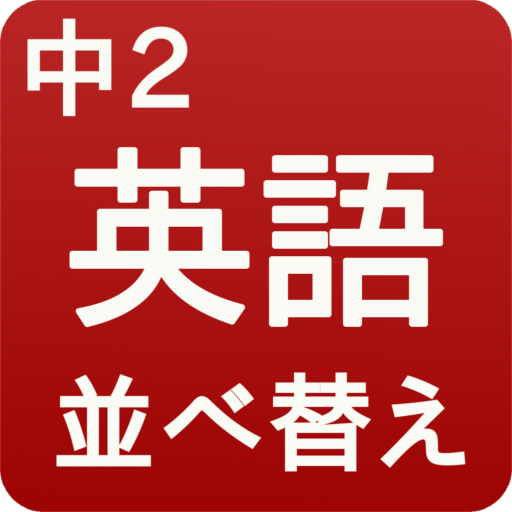単語クリックするとその単語の意味や品詞名、例文などが表示されます。
after
意味~したあとで 品詞接続詞
例文I will go out after I finish my homework.
宿題を終わらせた後、出かけます。
any 例文I will go out after I finish my homework.
宿題を終わらせた後、出かけます。
意味どんな~でも 品詞形容詞
例文You may use my car at any time.
あなたはいつでも私の車を使っていいですよ。
around 例文You may use my car at any time.
あなたはいつでも私の車を使っていいですよ。
意味次々に、連続して 品詞副詞
例文They have been passed around to many musicians.
それらは多くの演奏家たちに順々に回されました
as 例文They have been passed around to many musicians.
それらは多くの演奏家たちに順々に回されました
意味~のころ、~のとき 品詞前置詞
例文As of January 2014, more than 200 musicians have played the violins.
2014年1月現在で、200人以上の演奏家たちがバイオリンを演奏しました
case 例文As of January 2014, more than 200 musicians have played the violins.
2014年1月現在で、200人以上の演奏家たちがバイオリンを演奏しました
意味場合 品詞名詞
例文In case of an earthquake, cover your head first.
地震の場合には、最初にあなたたちの頭を覆いなさい
change 例文In case of an earthquake, cover your head first.
地震の場合には、最初にあなたたちの頭を覆いなさい
意味乗りかえる 品詞動詞
例文Take the Ginza Line to Aoyama-itchome, and change trains there.
青山一丁目駅まで銀座線に乗って、そこで電車を乗りかえてください
closely 例文Take the Ginza Line to Aoyama-itchome, and change trains there.
青山一丁目駅まで銀座線に乗って、そこで電車を乗りかえてください
意味じっと、一心に 品詞副詞
例文The audience listened closely to the sound of the violin.
観客はそのバイオリンの音をじっと聞きました
concert 例文The audience listened closely to the sound of the violin.
観客はそのバイオリンの音をじっと聞きました
意味演奏会、コンサート 品詞名詞
例文The concert will start at seven.
そのコンサートは7時に始まる。
cover 例文The concert will start at seven.
そのコンサートは7時に始まる。
意味覆う 品詞動詞
例文The top of the mountain is covered with snow.
その山の頂上は雪に覆われています。
craftsperson 例文The top of the mountain is covered with snow.
その山の頂上は雪に覆われています。
意味職人 品詞名詞
例文He wondered how to help as a craftsperson.
彼は職人としてどう助けられるだろうと思いました
create 例文He wondered how to help as a craftsperson.
彼は職人としてどう助けられるだろうと思いました
意味つくり出す 品詞動詞
例文We can create something new.
私達はなにかあたらしい物を作り出すことができる。
driftwood 例文We can create something new.
私達はなにかあたらしい物を作り出すことができる。
意味流木 品詞名詞
例文It was to make violins from driftwood from the disaster.
それは災害による流木からバイオリンを作ることでした
drill 例文It was to make violins from driftwood from the disaster.
それは災害による流木からバイオリンを作ることでした
意味訓練 品詞名詞
例文
earthquake 例文
意味地震 品詞名詞
例文In case of an earthquake, cover your head first.
地震の場合には、最初にあなたたちの頭を覆いなさい
emergency 例文In case of an earthquake, cover your head first.
地震の場合には、最初にあなたたちの頭を覆いなさい
意味緊急事態、非常時 品詞名詞
例文Do you know what to do in an emergency?
あなたは緊急事態に何をすべきかわかっていますか
evacuation 例文Do you know what to do in an emergency?
あなたは緊急事態に何をすべきかわかっていますか
意味避難 品詞名詞
例文
fire 例文
意味火事、火災 品詞名詞
例文In case of a fire, go outside.
火事の場合は、外へ出なさい
future 例文In case of a fire, go outside.
火事の場合は、外へ出なさい
意味未来の、将来の 品詞形容詞
例文
generation 例文
意味世代、同時代の人々 品詞名詞
例文
head 例文
意味頭、頭部 品詞名詞
例文In case of an earthquake, cover your head first.
地震の場合には、最初にあなたたちの頭を覆いなさい
heal 例文In case of an earthquake, cover your head first.
地震の場合には、最初にあなたたちの頭を覆いなさい
意味いやす 品詞動詞
例文The violins have a tender sound with the power to heal people.
そのバイオリンは人々をいやす力があるやさしい音をしています
here 例文The violins have a tender sound with the power to heal people.
そのバイオリンは人々をいやす力があるやさしい音をしています
意味ここ、この場所 品詞名詞
例文How many stops is Aoyama-itchome from here?
青山一丁目駅はここからいくつめの駅ですか
hit 例文How many stops is Aoyama-itchome from here?
青山一丁目駅はここからいくつめの駅ですか
意味襲う 品詞動詞
例文The earthquake hit Japan in 2011.
2011年に地震が日本を襲った
it 例文The earthquake hit Japan in 2011.
2011年に地震が日本を襲った
意味~することは 品詞代名詞
例文It is necessary for us to prepare for disasters.
わたしたちが災害に備えることが必要です
keep 例文It is necessary for us to prepare for disasters.
わたしたちが災害に備えることが必要です
意味持ち続ける、保持する 品詞動詞
例文I think it's important to keep the past in mind.
わたしは過去を心にとめておくことが重要だと思います
line 例文I think it's important to keep the past in mind.
わたしは過去を心にとめておくことが重要だと思います
意味路線 品詞名詞
例文Which line should I take from Aoyama-itchome?
青山一丁目駅からどの路線に乗ればよいですか
maker 例文Which line should I take from Aoyama-itchome?
青山一丁目駅からどの路線に乗ればよいですか
意味製作者 品詞名詞
例文The violin was made by a famous violin maker.
そのバイオリンは有名なバイオリン製作者によって作られました
mean 例文The violin was made by a famous violin maker.
そのバイオリンは有名なバイオリン製作者によって作られました
意味つもりで言う、さして言う 品詞動詞
例文What do you mean?
どういうつもりで言っていますか
million 例文What do you mean?
どういうつもりで言っていますか
意味100万の 品詞形容詞
例文There are three million people in this city.
この都市には3百万の人がいる。
mind 例文There are three million people in this city.
この都市には3百万の人がいる。
意味心 品詞名詞
例文And I think it's important to keep the past in mind.
そしてわたしは過去を心にとめておくことが重要だと思います
musician 例文And I think it's important to keep the past in mind.
そしてわたしは過去を心にとめておくことが重要だと思います
意味演奏家、音楽家 品詞名詞
例文They have been passed around to many musicians.
それらは多くの演奏家たちに順々に回されました
necessary 例文They have been passed around to many musicians.
それらは多くの演奏家たちに順々に回されました
意味必要な 品詞形容詞
例文It's necessary for us to prepare for disasters?
わたしたちが災害に備えて準備することが必要です
outside 例文It's necessary for us to prepare for disasters?
わたしたちが災害に備えて準備することが必要です
意味外へ、外で、戸外へ、戸外で 品詞副詞
例文In case of a fire, go outside.
火事の場合は、外へ出なさい
pass 例文In case of a fire, go outside.
火事の場合は、外へ出なさい
意味手渡す 品詞動詞
例文They have been passed around to many musicians.
それらは多くの演奏家たちに順々に回されました
past 例文They have been passed around to many musicians.
それらは多くの演奏家たちに順々に回されました
意味過去 品詞名詞
例文And I think it's important to keep the past in mind.
そしてわたしは過去を心にとめておくことが重要だと思います
pleasure 例文And I think it's important to keep the past in mind.
そしてわたしは過去を心にとめておくことが重要だと思います
意味喜び 品詞名詞
例文
prepare 例文
意味準備をする 品詞動詞
例文
protect 例文
意味保護する、守る 品詞動詞
例文Learn how to protect yourself.
自分の身の守り方を学びなさい
sound 例文Learn how to protect yourself.
自分の身の守り方を学びなさい
意味音、響き 品詞名詞
例文The audience listened closely to the sound of the violin.
観客はそのバイオリンの音をじっと聞きました
stop 例文The audience listened closely to the sound of the violin.
観客はそのバイオリンの音をじっと聞きました
意味やむ、中断する 品詞動詞
例文Wait in a safe place until it stops.
それがやむまで安全な場所で待ちなさい
stop 例文Wait in a safe place until it stops.
それがやむまで安全な場所で待ちなさい
意味駅、停留所 品詞名詞
例文How many stops is Aoyama-itchome from here?
青山一丁目駅はここからいくつめの駅ですか
tear 例文How many stops is Aoyama-itchome from here?
青山一丁目駅はここからいくつめの駅ですか
意味涙 品詞名詞
例文Some of the people were in tears.
人々の何人かは涙を流していました
tender 例文Some of the people were in tears.
人々の何人かは涙を流していました
意味やさしい 品詞形容詞
例文The violins have a tender sound with the power to heal people.
そのバイオリンは人々をいやす力があるやさしい音をしています
though 例文The violins have a tender sound with the power to heal people.
そのバイオリンは人々をいやす力があるやさしい音をしています
意味~だけれども 品詞接続詞
例文Though I cannot play soccer, I'm a soccer fan.
私はサッカーはできないけれども、サッカーファンです。
to 例文Though I cannot play soccer, I'm a soccer fan.
私はサッカーはできないけれども、サッカーファンです。
意味~すべきか、~したらよいか、~のやり方 品詞前置詞
例文I know how to protect myself.
わたしは自分の身の守り方を知っています
track 例文I know how to protect myself.
わたしは自分の身の守り方を知っています
意味線路 品詞名詞
例文It's the train on Track 2.
2番線の電車です
until 例文It's the train on Track 2.
2番線の電車です
意味~するまで 品詞接続詞
例文Wait in a safe place until it stops.
それがやむまで安全な場所で待ちなさい
wonder 例文Wait in a safe place until it stops.
それがやむまで安全な場所で待ちなさい
意味だろうかと思う、知りたいと思う 品詞動詞
例文He wondered how to help as a craftsperson.
彼は職人としてどう助けられるだろうと思いました
例文He wondered how to help as a craftsperson.
彼は職人としてどう助けられるだろうと思いました
